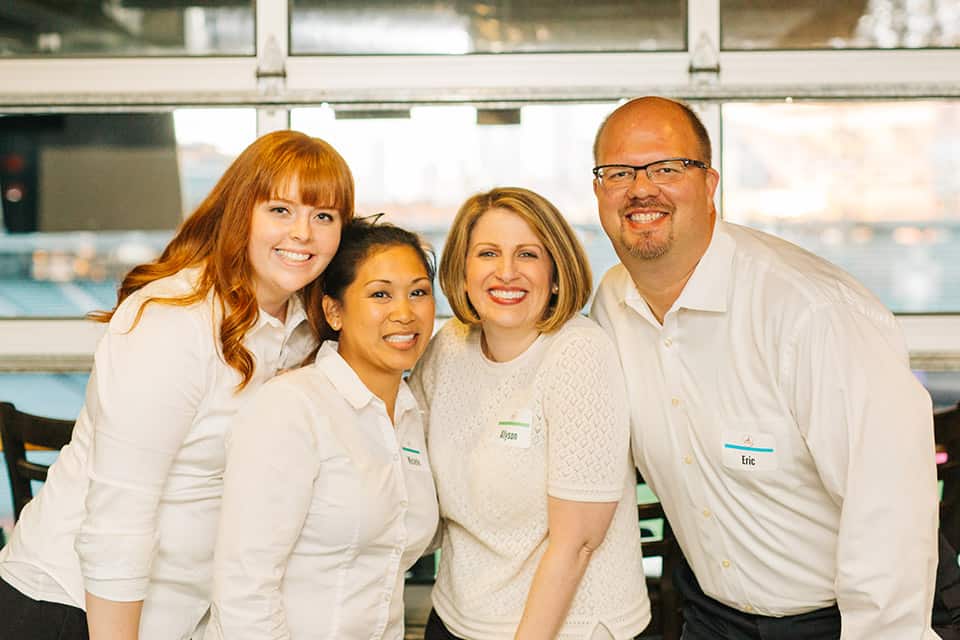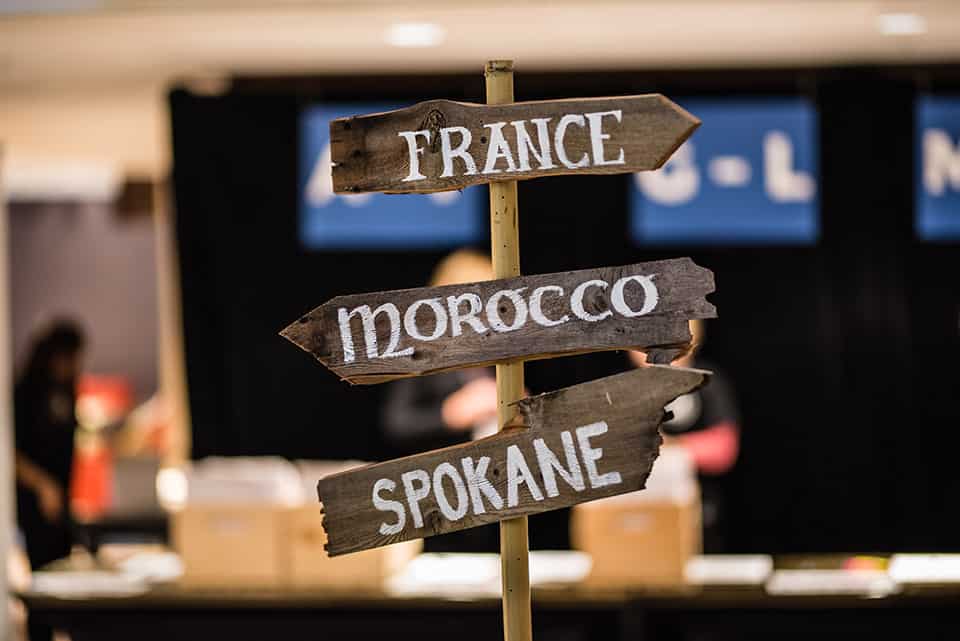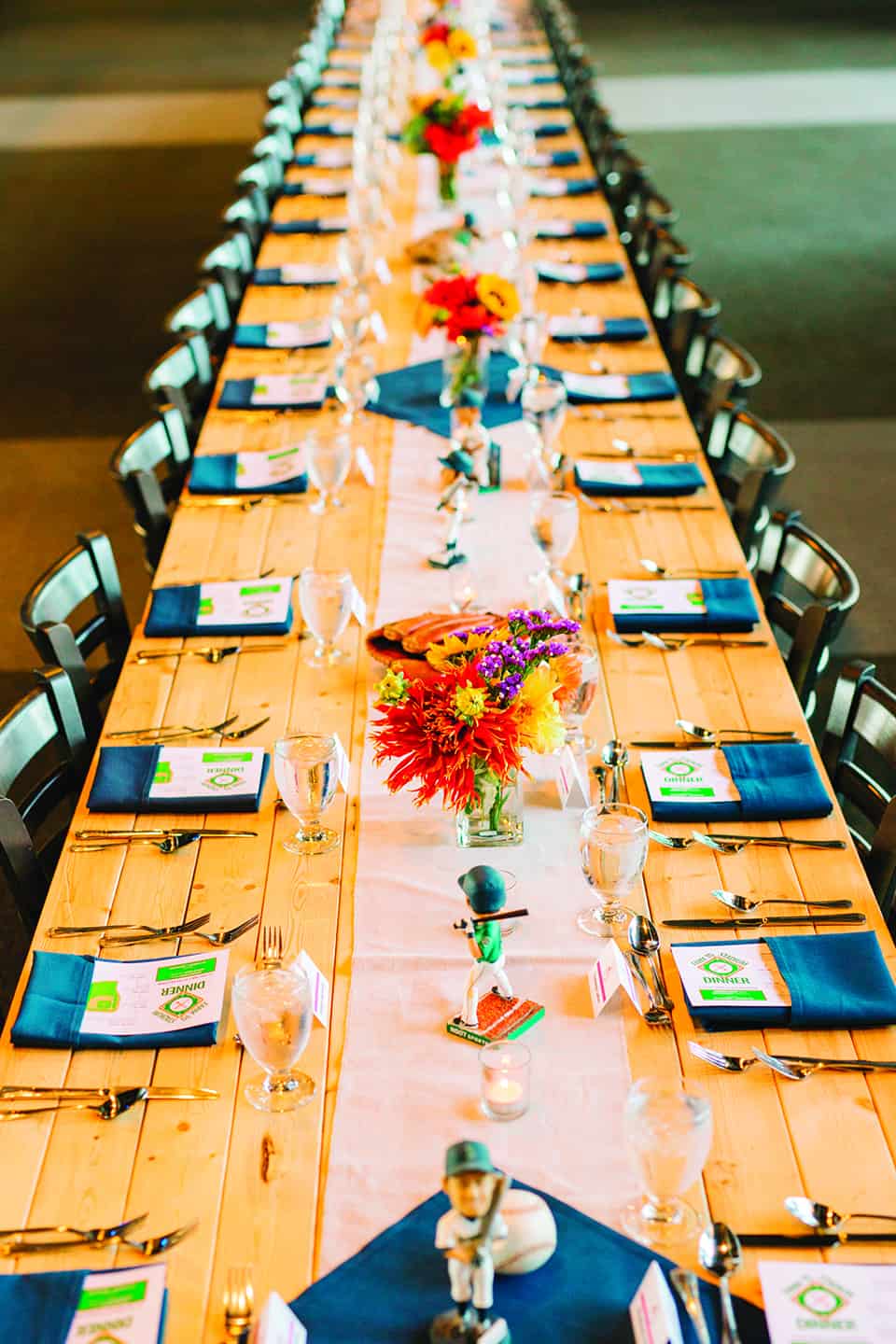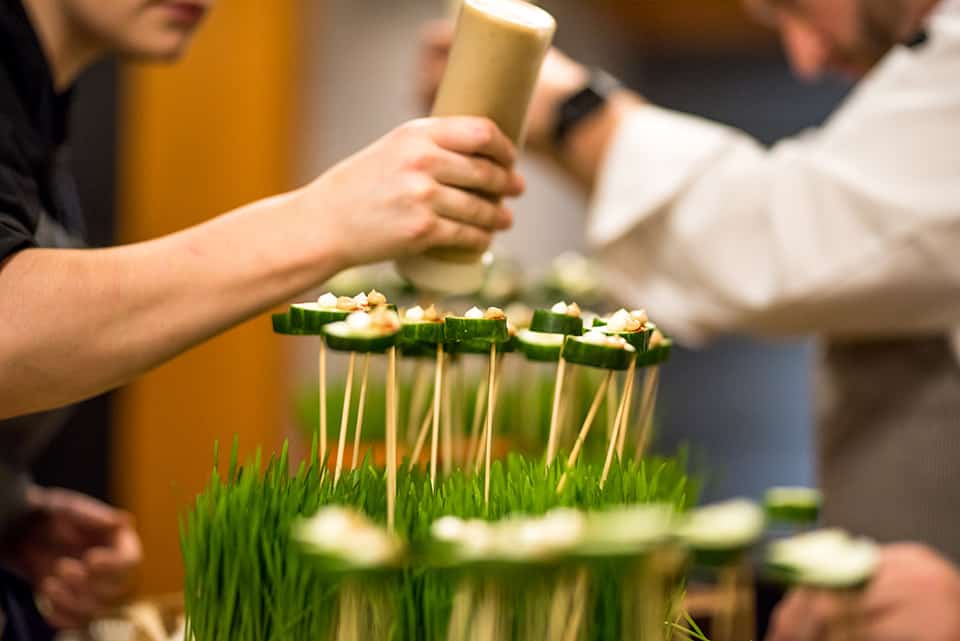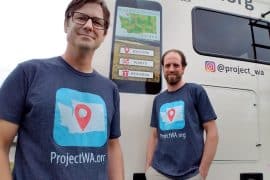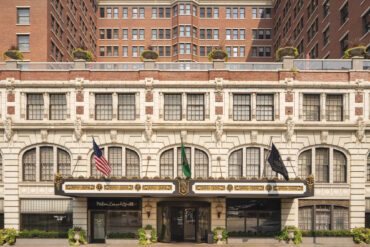Kevin Finch’s helps those in need one dinner party at a time
written by Kara Strickland | photos courtesy of Big Table
Kevin Finch used to walk into restaurants on professional covert missions: he was food editor and chief critic for a local magazine in Spokane. It’s the job many people dream about—being paid to eat and drink. But as he slipped in and out of restaurants, he couldn’t help but notice the people there with him—servers, hosts, bartenders, cooks. He wanted to know their stories.
Finch was surprised to discover that many people in the restaurant and hospitality industry were struggling, despite a cheery exterior as they took his drink order. “The most essential part of the uniform is a smile,” Finch said.
As he began to develop relationships with those in the industry, he did a little research. It turns out that workers in this field have the highest rates of drug and alcohol abuse in the nation. These same workers are two to three times more likely to deal with a broken relationship as those in other fields.
The more Finch thought about the hallmarks of the industry—long hours, most of them worked when others are off the clock; constant stress; many people without health insurance, sick pay, or any kind of safety net—these numbers made sense. But they weren’t just numbers to him anymore, they were people he had come to care about deeply. He wanted to do something.
Founding Big Table nonprofit
In January 2009, Finch started Big Table, the first nonprofit dedicated solely to serving people in America’s largest industry. He began with an idea for a lavish dinner, served at a long table. He wanted to invite the people who were always serving others to sit down, relax and enjoy a meal cooked by some of the best chefs in the area. In November 2009, he realized that dream, inviting dishwashers and chefs, owners, servers and hotel desk clerks to sit together at the same table (it’s custom made, and seats forty-eight). Over the years, many guests (including celebrated chefs) have referred to these dinners as the best of their lives.
But the dinner was only the beginning. That first evening, many of the guests wrote down names and situations of their friends and co-workers, who were struggling.
Since that first dinner, Big Table has grown to a staff of ten, and expanded beyond Spokane to Seattle. Big Table still hosts dinners, three per year in each city. But the rest of the time it keeps busy building relationships with people in the industry, helping to meet immediate needs—new clothes and housewares after a house fire, helping to fix a car that will only travel in reverse, the money to pay an electric bill after an injury—but also genuinely connecting. Many of these relationships last far longer than the crisis that initially brought in Big Table.
In both cities, Big Table works on a referral model. “Because we’re tapping into the networks that already exist, we’ve got a way to address one of the biggest puzzles that other social services agencies struggle with: isolation. How do you find the people who are most in need before they’re all the way gone? We’ve got the guy cutting carrots next to him who sees that person gradually unraveling over the course of months or years. He can say, ‘Hey, maybe we should talk to Big Table about this.’”
Though the network is strong, resources are often low. Still, Finch is blown away by the people he encounters. “I’ve never seen a more generous group,” he said. “For people who have very little, they give sacrificially: ‘I don’t have the money for my rent, but your rent is due sooner than mine, so here.’”
Through his time at Big Table, Finch has become convinced that this is an important sector for everyone to care about. “For the first few years I’ve been trying to convince people that this is a niche area that they should care about. Just by starting there, folks who have no interest in the restaurant and hospitality industry—maybe they could care less about food, or they don’t go out to eat—immediately their eyes go blank,” he said. “Instead, I’m starting to say, ‘We care for the working poor in the place with the highest concentration of need in the nation, period.’ That begs the question on their part: ‘Really, what is that place?’ Well, surprisingly, it’s the restaurant and hospitality industry. Now it’s framed, not as a niche, but as the most strategic place to impact the poor community, because we are caring for the place with the highest concentration of need. We’re catching people before they fall.”
https://1889mag.com/think/architecture/washington-startup-troy-alstead-opens-ocean5-table-47-gig-harbor/


